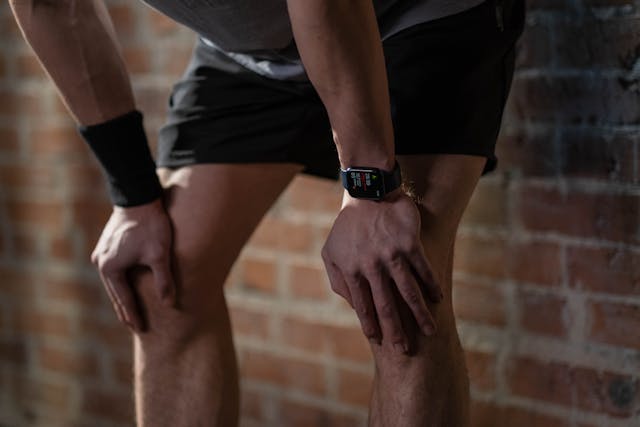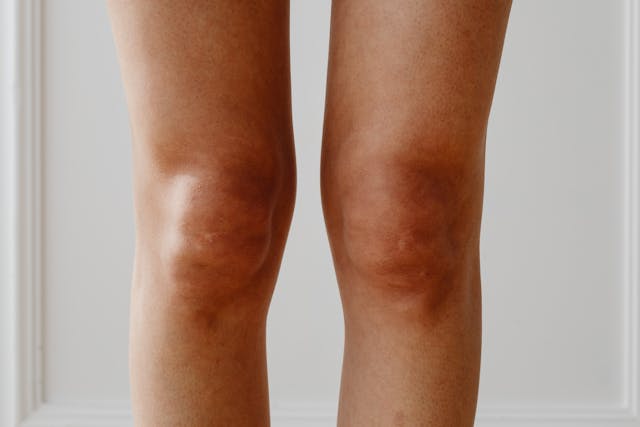 ActiveCare Physical Therapy, PC
ActiveCare Physical Therapy, PC
29 West 38th Street
Suite 601
New York, NY 10018

Osteoarthritis in the Knees: Understanding, Managing, and Finding Relief
Osteoarthritis in the knees, often referred to as “wear and tear” arthritis, is a common joint condition. It occurs when the protective cartilage that cushions the ends of your bones wears down over time. This can result in pain, stiffness, and reduced mobility in the knees. In this post, we’ll delve into the causes, symptoms, and effective management of osteoarthritis in the knees to help you better understand and navigate this condition.

Understanding Osteoarthritis in the Knees
Osteoarthritis in the knees typically develops due to a combination of factors, including:
1. Age
The risk of osteoarthritis increases with age, as the wear and tear on the joints accumulate over time.
2. Genetics
Some individuals may have a genetic predisposition to osteoarthritis, making them more susceptible to the condition.
3. Joint Injuries
Previous injuries or trauma to the knees, such as ligament tears or fractures, can increase the likelihood of developing osteoarthritis.
4. Obesity
Carrying excess body weight places additional stress on the knees, increasing the risk of osteoarthritis.
Symptoms of Osteoarthritis in the Knees
Osteoarthritis in the knees can cause a range of symptoms, including:
- Pain: Persistent knee pain, often worsened by weight-bearing activities or prolonged periods of sitting or standing.
- Stiffness: Difficulty in bending or straightening the knees, particularly after periods of inactivity.
- Swelling: Joint swelling and inflammation, especially after activity.
- Crepitus: A grating or cracking sensation when moving the knees.
- Reduced Range of Motion: Limited ability to fully extend or flex the knees.
Diagnosis and Evaluation
If you suspect you have osteoarthritis in your knees, it’s essential to consult a healthcare professional, typically a rheumatologist or orthopedic specialist. Diagnosis may involve:
- Medical History: Discussing your symptoms, risk factors, and medical history.
- Physical Examination: Assessing the range of motion, joint stability, and any signs of inflammation.
- Imaging: X-rays or MRI scans may be used to visualize the extent of cartilage damage and joint deterioration.
Effective Management and Treatment
While there is no cure for osteoarthritis, several strategies can effectively manage the condition and alleviate its symptoms:
1. Lifestyle Modifications
- Weight Management: Achieving and maintaining a healthy weight can reduce stress on the knees.
- Low-Impact Exercise: Engaging in activities like swimming, cycling, or walking can help maintain joint mobility and muscle strength.
- Use of Assistive Devices: Devices such as braces, canes, or shoe inserts can provide support and relieve pressure on the knees.
2. Medications
- Pain Relievers: Over-the-counter pain medications like acetaminophen or nonsteroidal anti-inflammatory drugs (NSAIDs) can help manage pain and inflammation.
- Prescription Medications: In some cases, stronger medications or injections of corticosteroids or hyaluronic acid may be prescribed for pain relief.
3. Physical Therapy
Physical therapy is a crucial component of managing osteoarthritis in the knees. Therapists can design exercises to improve joint flexibility, strengthen muscles, and enhance overall joint function.
4. Surgical Intervention
If conservative treatments are ineffective, surgical procedures such as knee arthroscopy or knee replacement surgery may be considered to repair or replace damaged joint surfaces.

Osteoarthritis in the Knees: Conclusion
Osteoarthritis in the knees can be a challenging condition, but with the right approach and management strategies, individuals can lead active and fulfilling lives.
If you’re experiencing symptoms of knee osteoarthritis, consult with a healthcare professional or orthopedic specialist, such as those at ActiveCare Physical Therapy™. They can help you develop a personalized treatment plan to manage your condition effectively and improve your knee health.
Contact Information
ActiveCare Physical Therapy™
29 West 38th Street, Suite 601
New York, NY 10018
Phone: (212) 777-4374
Email: staff@bestptnyc.com
Website: https://activecarephysicaltherapy.com/
